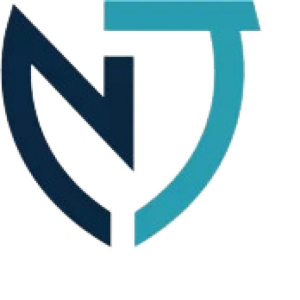When businesses or individuals require assets such as cars, machinery, or computer equipment but cannot or prefer not to purchase them outright, a hire purchase agreement can be an ideal solution. Here’s an overview of how hire purchase agreements work, their benefits, and key considerations.
Understanding a Hire Purchase Agreement
A hire purchase (HP) agreement is a type of financing arrangement in which the buyer (hirer) agrees to pay for goods in instalments over a predetermined period. The hirer gains possession of the asset immediately but does not become the legal owner until all payments, including any final fees, are made.
This agreement is commonly used for acquiring tangible assets like:
- Vehicles (cars, trucks, etc.)
- Equipment and machinery
- Consumer goods, such as electronics or appliances
The agreement typically involves three key parties:
- Supplier: The entity that provides the asset. e.g. Kia, JB Hifi, Apple
- Finance Company: The finance company (e.g. Westpac, Strattons, CBA) purchases the asset from the supplier and leases it to you, the hirer.
- Hirer: You (i.e. the individual or business using the asset and making instalment payments).
As an example:
Suppose you would like to buy a car from Kia (supplier) for $40,000 and don’t have the money to pay for it.
You can contact your accountant Melbourne for some ideas as to which finance company to use to help you purchase the car. Suppose, your accountant Melbourne recommends that you use Westpac as the finance company. This simply means that Westpac will lend you the money to purchase the car.
Instead of lending you the $40,000, Westpac will make it easier and pay $40,000 directly to Kia for the car. Once they receive the money from Westpac, Kia will provide you with the car to take home.
Suppose Westpac charge you, say $8,000 interest, for this loan. This means that you agree to pay Westpac back $48,000 (original $40,000 loan plus $8,000 interest). You become the hirer in this arrangement.
Westpac and yourself will then agree as to the length of the loan. Suppose, you both agree that the loan will be paid back over 4 years, or 48 months. This means that you agree to pay Westpac instalments of $1,000 a month, for the next 48 months (total repayments over 48 months will be $48,000). Once you make the final repayment of $1,000 in month 48, the car will legally belong to you.
Key Features of a Hire Purchase Agreement
- Ownership Transfer: Ownership remains with the finance company (e.g. Westpac) until the hirer (e.g. you) completes the final payment.
- Upfront Deposit: The agreement often requires an initial deposit (e.g., 10-20% of the asset’s value). For example, you may have to pay 10% or $4,000 to Kia and then Westpac will lend you $36,000 to settle the balance for the car.
- Fixed Installments: The hirer makes regular payments ($1,000 in the example above), which include both the principal amount and interest.
- Final Payment Option: At the end of the term, a final payment may be required to transfer ownership.
- Termination Rights: The agreement may allow for early termination, but this often incurs additional fees. This means, in the example above, that you maybe able to pay out the loan before the 48 months but doing so may result in an early termination fee.
How Does a Hire Purchase Agreement Work?
- Selection of Asset: The hirer selects the desired asset. e.g. car, computer equipment etc
- Agreement Execution: A hire purchase agreement is signed, specifying:
- Total cost of the asset
- Deposit amount
- Interest rate
- Monthly instalment amounts
- Payment term (e.g., 3-5 years)
- Asset Delivery: The hirer takes possession of the asset for immediate use.
- Repayment Period: The hirer makes regular payments as per the agreement.
- Ownership Transfer: Once all payments are completed, ownership is transferred to the hirer.
Benefits of Hire Purchase Agreements
- Improved Cash Flow: Spreading payments over time reduces the strain on upfront cash.
- Access to Essential Assets: Enables businesses or individuals to acquire necessary assets without needing the full purchase price.
- Budget Predictability: Fixed monthly payments make budgeting easier. Note that a financial advisor Melbourne can help you with your budgeting needs.
- Flexible Terms (i.e. length of loan): Terms can often be tailored to suit the hirer’s financial situation. Again, a financial advisor Melbourne can help determine an appropriate term for the loan.
- Tax Benefits: Under ATO rules, hirers maybe able to claim depreciation and interest as tax deductions (as well as claiming back a GST credit for the GST paid on the asset). Please contact your accountant Melbourne for clarification about the GST credit.
Considerations Before Entering a Hire Purchase Agreement
- Interest Rates: Ensure the interest rate is competitive, as this significantly impacts total costs. You can ask a financial advisor Melbourne for advice on a competitive interest rate.
- Ownership Delay: You don’t legally own the asset until the agreement concludes.
- Early Termination Costs: Check for penalties or fees associated with early repayment of the loan or cancellation of the loan.
- Asset Depreciation: For rapidly depreciating assets like vehicles, consider whether leasing might be more cost-effective. Consulting an accountant Melbourne, such as Nobel Thomas, to run through the different options maybe a wise move at this point.
- Hidden Fees: Review the agreement carefully to identify any hidden charges, such as late payment fees or final ownership costs. Your financial advisor Melbourne can also review the agreement if you are not sure what to look for.
Considerations Before Entering a Hire Purchase Agreement
Hire purchase agreements are a practical option for individuals and businesses needing assets without the immediate financial burden of purchasing outright. However, it’s crucial to evaluate the terms of the agreement and your financial circumstances to determine if this is the most cost-effective (and tax effective) solution.
Whether you’re expanding your business or acquiring a personal vehicle, a hire purchase agreement can be a stepping stone to accessing the assets you need today while paying for them tomorrow. Please don’t hesitate to contact your financial advisor Melbourne to determine what’s best for you.


